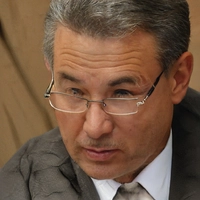Carragher's warning after Liverpool land Isak
Football has seen messy transfers before, but Jamie Carragher says this summer crossed a line. After Liverpool completed a move for Alexander Isak from Newcastle United, the former Liverpool defender called out the way the deal got over the line. In his view, a player refusing to train or pushing publicly to leave doesn’t just bend a contract—it sets a template others will copy.
His fear is simple: if going on strike works, more players will try it. Carragher didn’t hide his frustration with how certain moves unfolded during the window, putting Isak in the same conversation as other players who went public or withdrew cooperation to force a decision. He called it a “sad day for football” because of what it signals to the next wave of wantaway stars.
He also drew a sharp contrast. Crystal Palace’s Marc Guéhi kept his head down, trained, and stayed professional while Liverpool explored a deal for him. It didn’t happen—talks stalled late on Deadline Day—and Guéhi remains at Selhurst Park until at least January. Carragher singled out the defender’s conduct as the right way to do it: he protected his standing in the dressing room and with supporters, even if the move he wanted didn’t land.
That’s the crux of Carragher’s argument: two paths, two outcomes. One player gets the move by escalating. Another stays put after doing everything by the book. What will the next player in that position choose?
The names he mentioned tell the story. Brentford’s Yoane Wissa openly pushed for a transfer and got a move to Newcastle. In Portugal, Sporting CP fined Viktor Gyökeres earlier in the summer after he failed to report for pre-season amid Premier League interest, with Arsenal linked and watching the situation. Put together, Carragher says, these cases look like a trend rather than one-offs.
There’s a broader backdrop too. Clubs are juggling squad rebuilds, pressure from fans, and the Premier League’s financial rules, which force tough calls on who can be sold and when. In that climate, the leverage held by a star forward or a key defender grows. If that player sits out, the clock suddenly becomes the club’s enemy—value can drop, team spirit suffers, and the season’s plans wobble. That’s exactly why these standoffs often break the player’s way.
Newcastle’s situation underlines the point. Selling a leading striker isn’t just a football decision; it’s financial strategy, squad planning, and PR rolled into one. Wissa’s arrival fills a gap on paper, but replacing a top-tier finisher is never plug-and-play. The ripple effects last months, sometimes seasons.
At Liverpool, the debate moves in the opposite direction. Yes, the squad has bodies at the back after a summer of churn, Carragher noted, but experience and quality at the very top end still need to be proven over a long season. Up front, Isak brings goals and movement between the lines—the traits that suit Liverpool’s pressing and quick transitions. The question Carragher raised is not about talent; it’s about the cost of the method. Does the club inherit a short-term win with a long-term headache if others follow the same path?
The new transfer playbook—and how clubs fight it
Player power isn’t new. It just keeps evolving. A decade ago, a “come-and-get-me” quote or a formal transfer request might have been the flashpoint. Today, flashpoints are more pointed: skipping training, withdrawing from friendly matches, going quiet on club media, or presenting “muscle tightness” that coincidentally clears up after a move. The tactics are calculated to keep the player fit, keep the market hot, and increase pressure on their current club.
We’ve seen the cycle before. Riyad Mahrez missed sessions at Leicester to get a move away. Ousmane Dembélé didn’t turn up for Borussia Dortmund training before his Barcelona switch. Harry Kane’s delayed return to Tottenham’s pre-season became a national story. Antony stopped training with Ajax before reuniting with his former coach in England. Dimitri Payet refused to play for West Ham to return to Marseille. Different clubs, different leagues, same leverage play.
Clubs aren’t powerless, but their tools are blunt. Fines are the first lever. Some teams have clear codes of conduct with escalating penalties for lateness, missed training, or refusal to play. Those punishments protect discipline but rarely change the final outcome when a dominant market player decides to go. Public statements can backfire if the dressing room senses a stalemate. Legal action is rare and risky—most boards would rather bank a big fee and reset than drag a saga into court.
Release clauses are the cleanest solution on paper. Set the price, let the market decide. Spain has hardwired clauses in player contracts, which speeds up the process but pushes the negotiation to wages and agent fees. In England, release clauses are less common and often secret, which keeps control with the club but invites brinkmanship. When there’s no firm number, pressure and patience decide the deal.
Agents are central. They frame the narrative, steer the media tempo, and position their client for the next cycle. When a player escalates, it’s usually after weeks of quiet diplomacy failed. By the time training is missed, the relationship is already strained. Dressing rooms know it. Managers know it. That’s why coaches often move quickly to protect the group, even if it means leaving a star at home while talks continue.
Fans see it in raw terms: loyalty versus ambition. A walkout can burn bridges in a heartbeat. But football is pragmatic. A player who scores on debut at a new club is quickly embraced. A player who stays, apologizes, and performs can also flip the mood. What lingers is the lesson: if hardball worked for one, it might work for the next.
That’s where Carragher’s concern lands. He fears normalization. If Isak’s strike accelerates a big move, and Wissa’s public push does the same, then others will copy. When Guéhi plays it straight and gets nothing but kind words, some will decide the polite route is the slow route. The incentives are skewed.
So what can clubs do? A few ideas are already in motion across the league:
- Tighter internal rules with automatic fines for missed sessions and communication blackouts.
- Performance-related loyalty bonuses that get voided by strikes or unauthorized absences.
- Earlier sale decisions—moving a player at the start of June rather than gambling on late-window brinkmanship.
- Clearer succession plans so a wantaway star doesn’t hold the season hostage.
None of that ends the problem, but it resets the balance. If a club can show it’s ready to sell on its terms, or sit a player without tanking results, leverage shifts back. The market always finds a new equilibrium.
Liverpool now carry the scrutiny that comes with any headline signing secured after a stand-off. On the pitch, the fit looks obvious: Isak’s movement between the center-backs, his clean finishing, and his reading of space should mesh with an attack built on speed and pressing cues. Off the pitch, there’s a cultural test. Does a dressing room shaped on hard running and buy-in welcome a star who forced his way out elsewhere? Usually, the answer depends on effort from minute one. If the goals flow, the noise tends to fade.
At Palace, Guéhi faces a different kind of test: resetting and leading after a summer of speculation. The fans already rate him. The manager does too. If he holds form, a January bid will come. If not, Palace still have a top center-back who gave his all despite the distractions—the kind of character clubs say they value but sometimes overlook when a late-window panic sets in.
Newcastle must now show they can absorb the shock. Replacing a primary source of goals is the hardest job in recruitment. Wissa brings energy, pressing, and a knack for finding pockets. The club will hope the collective can shoulder the load while the new signing settles. Results in the first six to eight weeks will tell us how much the balance has shifted.
As for Gyökeres, Sporting’s stance—discipline first, then negotiation—was a reminder that clubs outside England don’t always play to the Premier League’s clock. Fines land. Players train with the group or they don’t play. Sometimes the move still happens; other times the window closes and everyone patches it up. Either way, it’s a line in the sand.
Where does that leave the Premier League? Probably staring at a bumpy year. If Carragher is right, more stars will test the limits as soon as January. Some will push behind closed doors. Others will go public. Clubs will talk tough, then compromise. Through it all, the best-run teams won’t wait for a crisis—they’ll plan two windows ahead, lock in clauses where they can, and keep the squad culture strong enough to survive the next stand-off.




